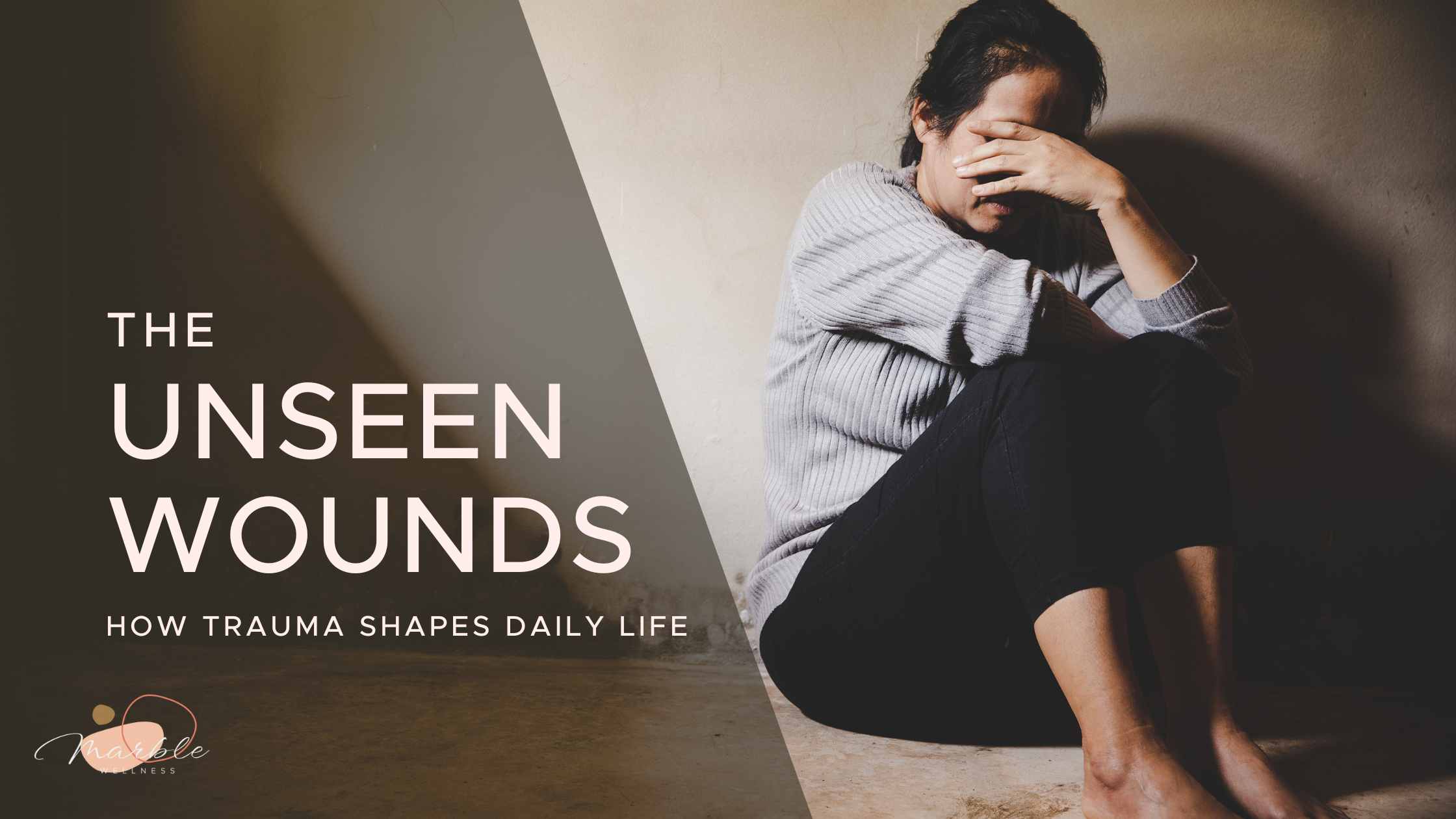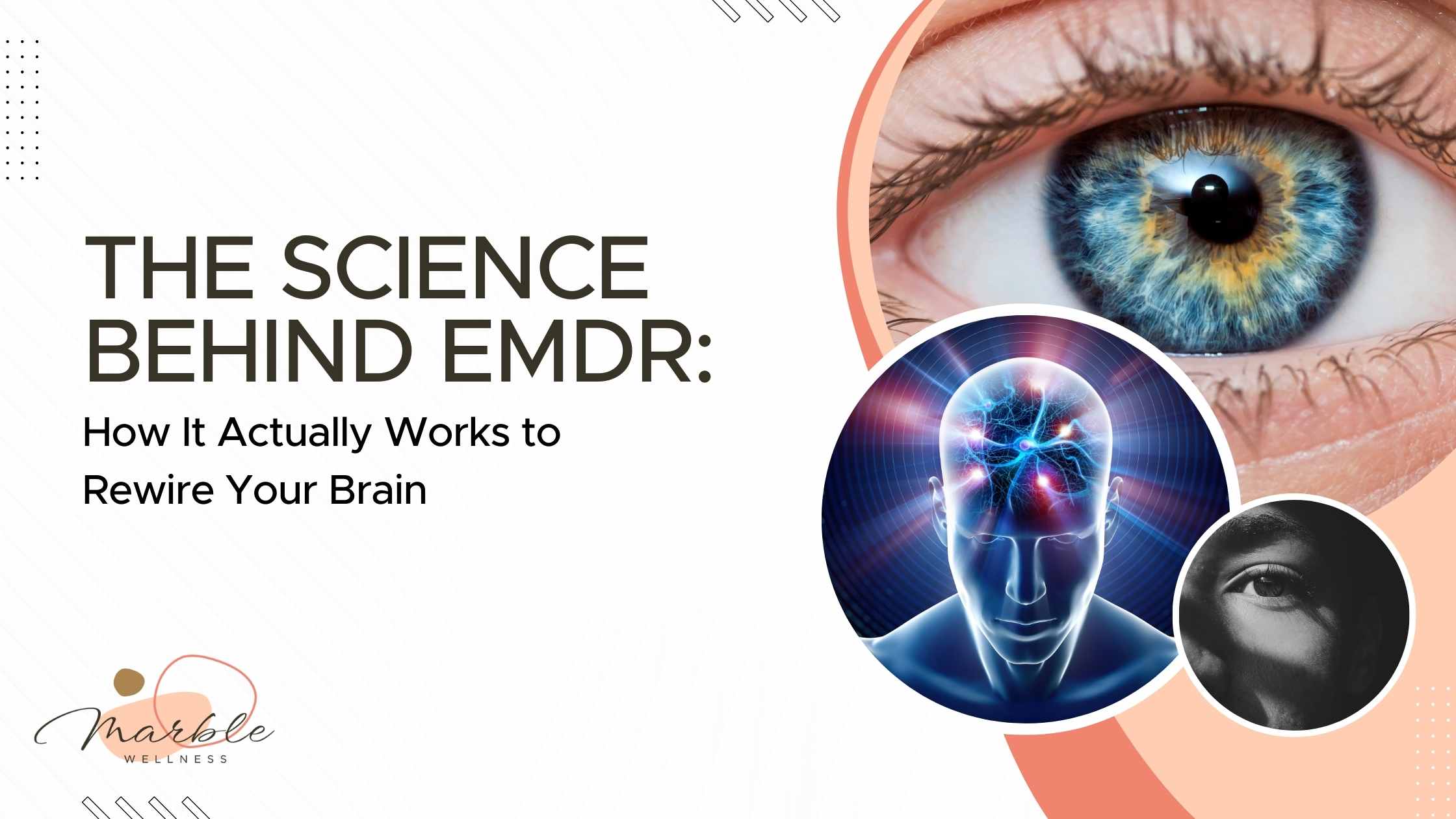Deciding on the right type of therapy can be overwhelming, especially when you’re facing emotional pain or trauma. You want a therapy that feels like it will truly help, but there are so many options to choose from! EMDR (Eye Movement Desensitization and Reprocessing) therapy has helped countless people process trauma and emotional wounds, but how do you know if it’s the right fit for you? In this blog, we’ll explore the factors that can help you determine whether EMDR therapy is the best choice for your healing journey.
What Is EMDR Therapy? (A Quick Overview)
Before diving into whether it’s right for you, let’s take a quick refresher on what EMDR therapy is. EMDR is a structured therapy designed to help people process traumatic memories and experiences. By using bilateral stimulation (such as guided eye movements or tapping), the brain’s natural healing process is activated, helping you reprocess the memories so that they no longer hold the same emotional charge.
Key Signs EMDR Therapy May Be Right for You
While everyone’s healing journey is unique, there are certain signs that may indicate EMDR is a good fit. Here are a few things to consider when deciding if EMDR therapy could work for you:
You’re Open to a Different Approach
If you’re feeling open to new therapeutic techniques and you’re curious about how EMDR can work, that’s a good sign. This therapy is often effective when people are ready for something different from traditional counseling. If you’re looking for a new approach that directly targets trauma, EMDR could be exactly what you need.
You’ve Experienced Trauma
EMDR is especially effective for people who have experienced trauma, whether it’s a single event like an accident or ongoing experiences such as childhood abuse. If you’re struggling with memories or emotions related to trauma, EMDR can help you process those memories in a safe, healing way.
Traditional Talk Therapy Hasn’t Been Enough
If you’ve tried traditional talk therapy in the past and still find yourself feeling stuck, EMDR might offer the breakthrough you need. Unlike traditional therapy, EMDR works to reprocess memories rather than just talking about them. It’s especially helpful when other methods haven’t provided the relief you’re seeking.
You’re Dealing with PTSD or Flashbacks
If you experience symptoms of PTSD, such as flashbacks, nightmares, or overwhelming anxiety tied to specific memories, EMDR can be a game-changer. It helps your brain “file” those memories more appropriately so they no longer dominate your daily life.
You’re Ready to Tackle Deep Emotional Pain
EMDR therapy is about more than just talking through problems—it’s about healing deep emotional wounds. If you’re ready to confront and process painful memories and emotions in a way that leads to long-term relief, EMDR could be the key to moving forward.
You Want to Avoid Re-living the Trauma
One of the great things about EMDR is that it doesn’t require you to relive your trauma in detail. You don’t have to constantly talk about the traumatic experience in depth. Instead, the therapy focuses on reprocessing the memory so that the emotional distress tied to it lessens, without the need for constant recounting.
What to Expect During EMDR Therapy
If you’re considering EMDR, it’s helpful to understand what to expect. Here’s a brief rundown of the process:
- Assessment and Preparation
In your first session, your therapist will assess your history, including any traumatic experiences or emotional struggles. They’ll also explain how EMDR works and ensure you’re comfortable with the process. - Targeting Specific Memories
Together with your therapist, you’ll identify which traumatic memories you’d like to work on. EMDR is focused on specific memories or issues, and you’ll work on them one by one, instead of addressing everything at once. - Bilateral Stimulation
During the session, your therapist will guide you through the use of bilateral stimulation—whether that’s through eye movements, tapping, or auditory sounds. This helps your brain process and reframe the traumatic memory. You’ll be aware of the memory but will feel more emotionally detached from it by the end of the session. - Integration and Reflection
After each session, you’ll have the opportunity to reflect on the experience and discuss any changes you’ve noticed. Over time, the traumatic memory should lose its emotional intensity, leading to a sense of relief and empowerment.
Is EMDR Right for Everyone?
While EMDR is an incredibly effective therapy for many people, it’s not for everyone. If you have certain mental health conditions (such as dissociative disorders or severe complex trauma), EMDR may not be the best option right away. It’s important to have a conversation with your therapist about whether EMDR is the right fit based on your unique situation.
Is EMDR Right for YOU?
Ultimately, whether EMDR is right for you comes down to your specific needs, experiences, and willingness to engage with the process. If you’ve experienced trauma, if you’ve felt stuck with traditional therapy, or if you’re ready to take a different approach to healing, EMDR could be an incredibly helpful tool on your journey.
Consider Trauma Therapy in the St. Louis Area
If you’re curious to learn more about EMDR therapy or think it might be right for you, reach out to our team. We’re here to help guide you through the process and support you every step of the way on your healing path. If you live in the St. Louis metro area and are ready to improve your mental health, our St. Louis trauma therapists are here to help.
Contact Us!
Learn About Our Group Offerings

Additional Counseling Services at Marble Wellness in St. Louis, MO
Our counseling services are designed to help set you on a path of living a more fulfilled, calm, and happy life. Our incredible team of STL-based therapists has a variety of training backgrounds and areas of expertise. We specialize in anxiety, depression, grief, chronic illness, therapy for men, couples, and maternal overwhelm. Our practice also helps new moms with various postpartum concerns, moms in the thick of parenting, and moms with teens. We can also chat from wherever you are in the state with online therapy in Missouri. No matter where you are in your mental health journey, we would love to support you.



